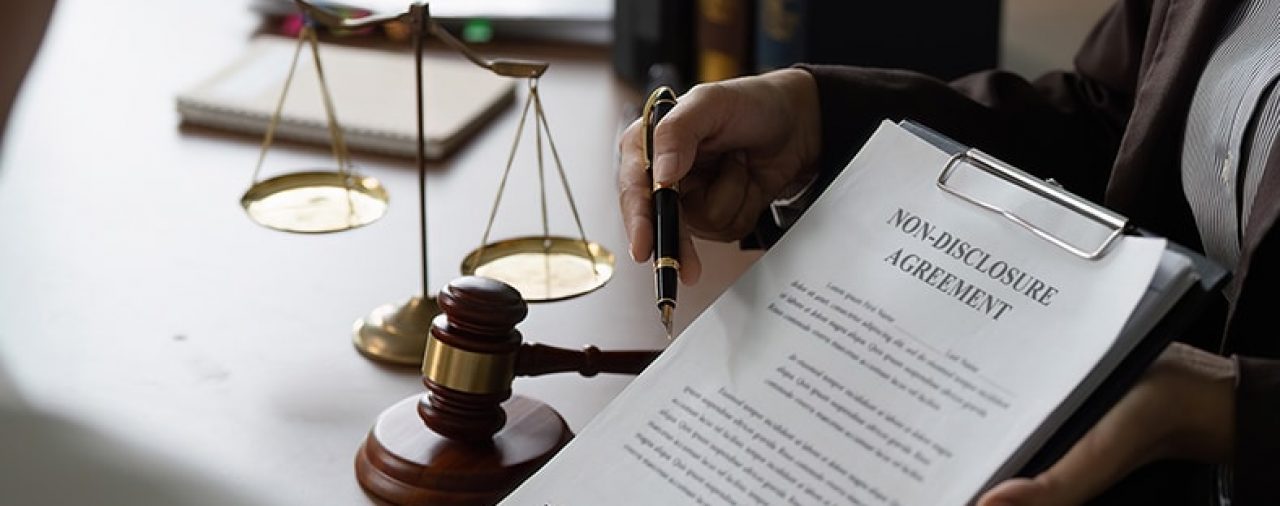Content Highlights
Did you know that you could be on the hook for your former company’s legal fees regarding an NDA? If a dispute over the NDA arises, an important question is: “Who pays the lawyers?”
At Gardner Employment Law, we specialize in analyzing agreements between clients and their employers. Read on to learn when you may owe attorney’s fees for an NDA.
What Kind of Information is Affected By An NDA?
An NDA affects different categories of information, including proprietary information, confidential information, and trade secrets. While these aren’t interchangeable – like comparing Coca-Cola’s secret recipe to its upcoming marketing plan – an NDA ensures each type is protected appropriately.
| Category | Definition | Examples |
| Proprietary Information | All unique information a business creates, even if used publicly. | Branding concepts, sales reports, vendor lists |
| Confidential Information | Not generally known by others; learned inside the company; disclosure could cause harm. | Marketing strategies, customer lists, research data |
| Trade Secrets | Confidential + independent economic value + reasonable steps to protect. | Coca-Cola recipe, Google autonomous vehicle algorithms |
Think of it like concentric circles: The category of Trade Secrets sits inside Confidential Information, which sits inside Proprietary Information.
Most NDAs protect confidential information broadly defined in the contract. That’s why executives need to read the definitions carefully – because once you sign, even information you don’t think of as critical may be covered in the contract definition.
Who Owes the Attorney’s Fees in An NDA Dispute?
As with most issues in the law, the answer is, “It depends.” We created a chart below to help in figuring out the answer.
But first, here are the variables that must be considered before concluding which party owes the attorneys’ fees.
- The American Rule: In most U.S. cases, each side pays its own legal fees, win or lose.
- Fee-shifting clauses in NDAs: Many NDAs change the standard rule, requiring the “losing party” to pay the prevailing party’s fees. If your former employer sues you and wins, you owe not just damages but also the company’s six-figure legal bill, plus your own attorney’s fees.
- Texas Law – Chapter 38 Civil Practice & Remedies Code: Even without a clause, the prevailing party in a contract dispute is entitled to recover fees if that party followed the statutory requirements. However, injunctions alone don’t trigger fees, but money damages do.
In an NDA dispute, how do you figure out who pays attorneys’ fees?
| NDA Fee Provision / Texas Law | Outcome on Attorney’s Fees for Executives |
| NDA has “prevailing party” fee clause | Loser pays both sides’ legal fees. High risk if you’re sued and lose. |
| Texas (Chapter 38) + damages awarded | The prevailing party can recover fees, even without a clause in the NDA. |
| Texas (injunction only, no damages) | Each side pays their own fees. |
| No “prevailing party” clause, outside Texas | Each side pays their own fees (American Rule). |
An NDA breach claim can escalate quickly. Whatever the result, you may suffer reputational fallout plus the possibility of paying two sets of lawyers.
Case Example: Omarosa vs. the Trump Campaign
The most high-profile fight over NDA fees in recent years involved Omarosa Manigault Newman, a senior aide to President Trump. After Ms. Newman left the White House, she released secret recordings and a book, and the Trump campaign accused her of violating her NDA.
Here’s the twist: she won. An arbitrator ruled that the NDA was overly broad and therefore unenforceable. The campaign not only lost but was ordered to pay her $1.3 million in attorney’s fees.
Why this case matters:
- If you seek to enforce an NDA and lose: Fee provisions can backfire, leaving you on the hook for the other side’s lawyers.
- If you’re accused of breach: Prevailing could mean recovering your own legal fees – but only after enduring a public, expensive fight.
- The reputational cost: NDA disputes attract headlines. Even a victory in court doesn’t erase the scrutiny.
Bottom Line
At Gardner Employment Law, we work with executives, physicians, and professionals to negotiate NDAs before they become litigation weapons. If you’re exiting a role, entering a new one, or facing an NDA dispute, we are here to help you protect both your reputation and your resources.

